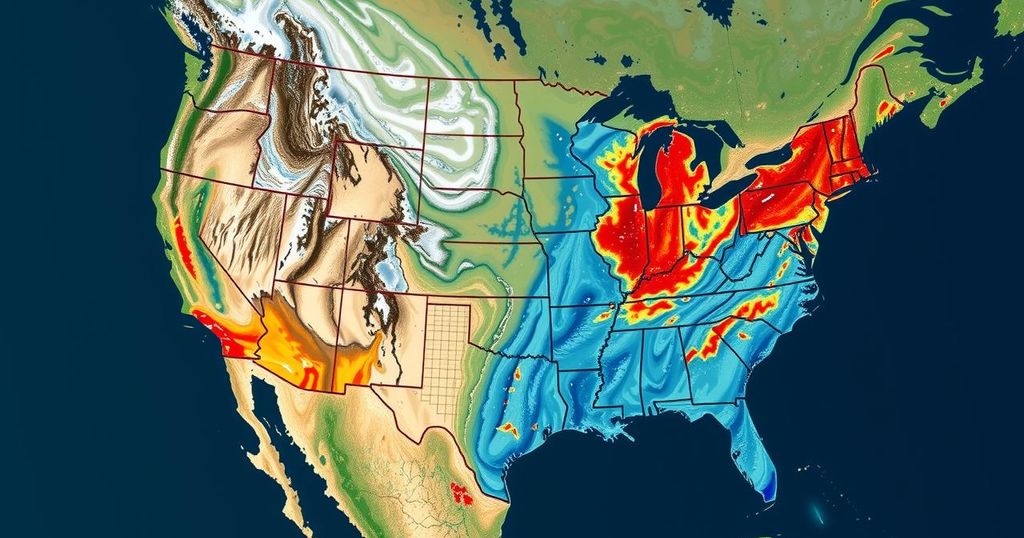The Impact of American Climate Policy on Global Diplomacy
The potential return of Donald Trump to the presidency in 2024 raises concerns about another U.S. withdrawal from the Paris Agreement, which could disrupt global climate dialogue and undermine trust, especially for developing nations that suffer the worst climate impacts. This cyclical pattern of American climate policy illustrates a disconnect between the commitments of wealthy nations and the survival needs of the Global South, prompting calls for independent action and decentralized cooperation.
The cyclical nature of American climate policy has taken another significant turn, particularly with the possibility of Donald Trump’s re-election in 2024, prompting concerns about a potential withdrawal from the Paris Agreement. This anticipated shift could undermine global climate conversations and disrupt international consensus, particularly affecting nations of the Global South who feel the repercussions of climate change most acutely. The narrative began optimistically in 2016 under President Barack Obama, who embraced the Paris Agreement as a commitment to global climate leadership. However, Trump’s subsequent withdrawal, driven by economic considerations, initiated a pattern of volatility that could re-emerge with his return.
For developing countries grappling with climate-induced challenges, American policy oscillations illustrate a poignant disparity: while wealthier nations can opt-out of commitments, for them, climate action is a necessity rather than a luxury. In regions such as Lagos, Jakarta, and Honduras, where the impact of climate change manifests in immediate crises, the repeated disengagement of the United States serves as a profound betrayal. As they navigate dire agricultural losses and displacement due to climate effects, the argument that international agreements disadvantage American industry resonates poorly as they confront tangible devastation.
Another potential shift in U.S. climate policy could significantly affect future negotiations at COP30, representing a crucial juncture for global climate diplomacy. Developing nations, already doubtful of Western commitments, may take a more skeptical stance if the U.S. reverses course once more. Moreover, the economic rationale typically put forth to justify withdrawal falls on deaf ears for countries facing existential threats. Rather than waiting for American leadership, many are beginning to seek self-reliance and develop their unique climate resilience strategies, often turning to China for support amidst U.S. uncertainty.
The emerging necessity for decentralized cooperation is evident, with cities and non-state actors forging cross-border climate initiatives independent of national governments. The reliability of American leadership is increasingly questionable, highlighting a pressing need for new frameworks that can transcend political changes. The core principle of the Paris Agreement revolves around mutual responsibility, trust, and cooperative governance; any withdrawal from these commitments threatens to further fracture international relations.
As the effects of climate change intensify, the implications extend beyond mere diplomatic challenges; trust among nations erodes, potentially compromising collective environmental governance. The Global South is left with a stark realization: their survival against climate threats cannot rest on the fluctuating commitments of wealthier nations. Their predicament underscores the urgent need for a renewed approach to global climate action that is less vulnerable to the political whims of the powerful.
America’s climate policy has historically impacted global climate negotiations, influencing international perceptions of commitment to climate action. The Paris Agreement, entered into by President Obama in 2016, represented a significant diplomatic effort to unite countries in combating climate change. However, Trump’s withdrawal shortly thereafter illustrated the fragility of such commitments, leading to a pattern of engagement and disengagement that challenges the reliability of U.S. leadership. Developing nations, particularly in the Global South, face severe consequences of climate disruption while witnessing the most powerful nations shift their priorities, creating skepticism and drawing into question their own paths toward resilience. This evolving landscape has prompted discussions about building frameworks for climate cooperation that can withstand domestic political volatility, indicating a shift in priorities for many developing countries. The search for new alliances, particularly with emerging powers like China, highlights the urgency of action as climate crises escalate.
In summary, the cyclical nature of U.S. climate policy poses significant challenges for global climate diplomacy, particularly affecting developing nations. The potential re-election of Donald Trump could reinstate patterns of withdrawal from international commitments like the Paris Agreement, reinforcing skepticism among nations that are severely impacted by climate change. As they grapple with immediate existential threats, the Global South is increasingly looking for independent climate action strategies that circumvent reliance on fluctuating commitments from wealthier nations. The path forward is uncertain but indicates the necessity for resilient frameworks capable of sustaining international cooperation in the face of political uncertainties.
Original Source: www.ips-journal.eu




Post Comment